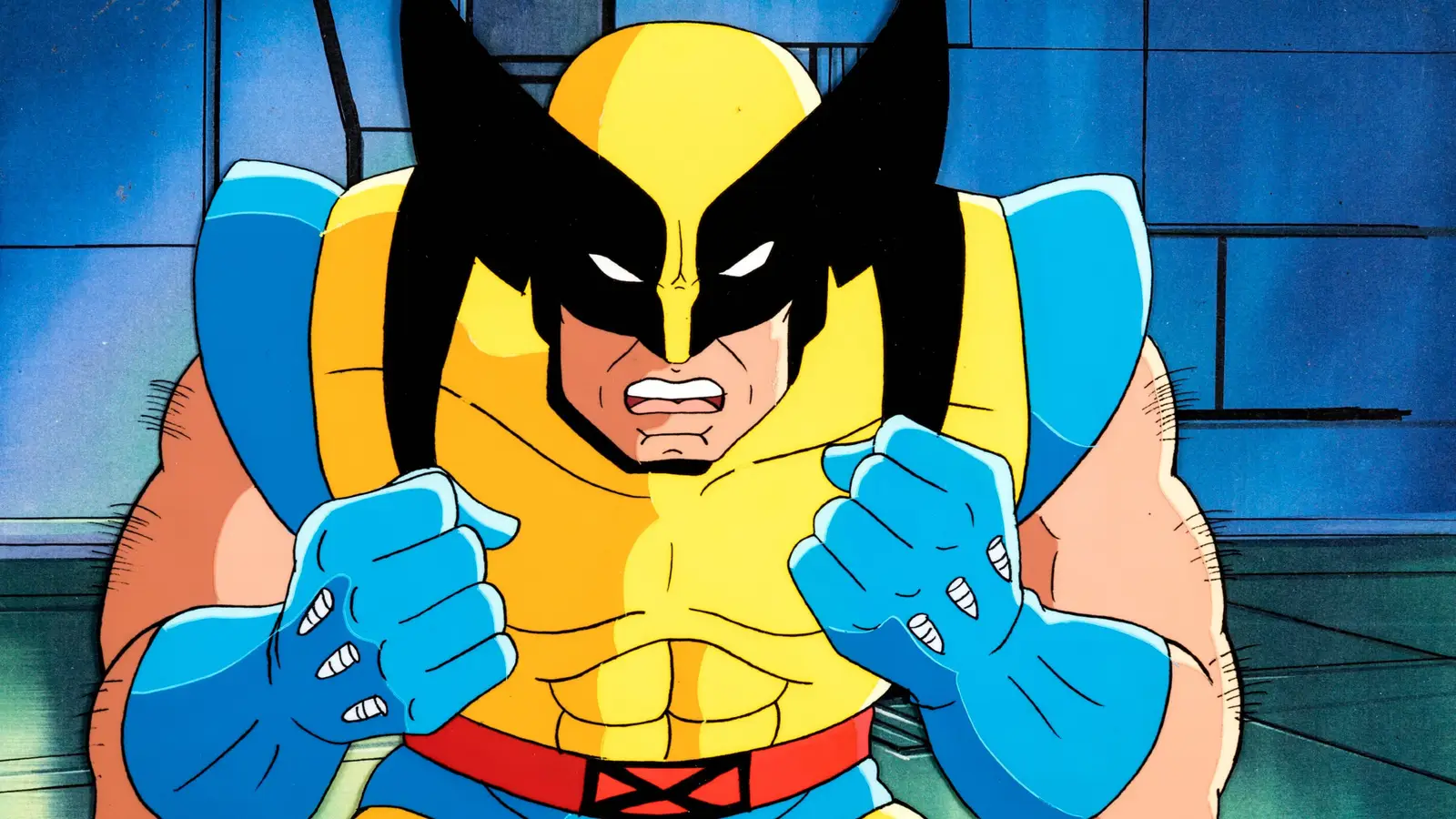Copyright Screen Rant

X-Men: The Animated Series includes some stellar episodes that prove to be better adaptations than any of the mainstream X-Men movies. Yes, there are some X-Men: The Animated Series episodes worth skipping, but the majority have a lot of merit. After all, this version of the titular team was the defining adaptation for an entire generation. This meant that, despite the many highly-ranked X-Men movies of the 2000s and 2010s, X-Men: The Animated Series remained the gold standard for many. Upon rewatching the latter, it becomes clear that this is not solely due to nostalgia. Many of X-Men: The Animated Series' episodes hold up to this day, and adapt some of the mutant team's comic books better than any movie. When factoring in X-Men '97's best episodes too, as the sequel to X-Men: The Animated Series, several installments stand out above the 14 mainline X-Men movies. Time Fugitives: Part 1 "Time Fugitives: Part 1" is a great installment of X-Men: The Animated Series in its own right. However, the reason it stands above the X-Men movies is that it explores a concept none of the latter did. In this two-parter, Cable returns to the past to stop Bishop, another time-traveling mutant, from preventing a disease that somehow stops Cable's future from existing. This episode focuses on Bishop's attempts to stop a mutant-killing plague, something that none of the X-Men movies focused on. Bishop and the X-Men are fighting for what is right, but Cable's discovery that he must help Apocalypse, who is behind the plague, to spread it and save his own future, adds an element of moral ambiguity that fits the character so well. Time Fugitives: Part 2 This leads into "Time Fugitives: Part 2." The episode begins with the feud between Cable and Bishop, the latter defended by the X-Men. Eventually, after Cable coerces Wolverine into helping him, the episode deals with the conflicting timelines and the plague at hand. Cable's use of Wolverine's healing factor is a great way to wrap up the plague storyline, all while allowing Bishop to complete his goal and the future timelines to be saved. In exploring the classic time-travel stories of the X-Men comics with the added wildcard of Cable, X-Men villains like Apocalypse, and a new concept the movies never tackled, "Time Fugitives" stand apart. One Man's Worth: Part 2 "One Man's Worth" doesn't necessarily adapt a major storyline from the comics like the Phoenix Saga or Days of Future Past, but that does not stop it from being a standout of X-Men: The Animated Series, which is better than any X-Men movie. The episode includes the classic X-Men time-travel shenanigans involving Bishop's attempt to stop the Age of Apocalypse, all while delving into the thematic, political messaging synonymous with the mutants. Its exploitation of racism, against people and mutants, remains prevalent and impactful today, and is handled with maturity. The emotion in "One Man's Worth" is perhaps what makes it land so well. All of the characters involved, and their interactions with one another, feel incredibly sincere. Despite the motivation being to save the world from Apocalypse, the smaller, genuine moments of reflection allow "One Man's Worth" to rank above any X-Men movie. The Final Decision The final episode of X-Men: The Animated Series season 1 is "The Final Decision," focusing on Magneto teaming up with Charles Xavier to defeat Master Mold and his Sentinels. X-Men: The Animated Series was the first major adaptation of the comics, so this episode has a feeling of weight to it. It's the first time audiences can truly witness Magneto begrudgingly allying with his enemies, Master Mold enacting his plans for world domination, and the Sentinels being a foil to mutants. It feels significant as this, bolstered by its equally significant placement as the final episode of season 1. The movies have never used Master Mold as a villain, and the Sentinels were barely focused on in 2014's X-Men: Days of Future Past. For this reason, "The Final Decision" goes down as a better adaptation than any X-Men movie. The Phoenix Saga Anyone who knows anything about the X-Men movie timeline knows that it has failed to adapt the comics' iconic Phoenix Saga not once, but twice. X-Men: The Last Stand was entertaining yet disappointing, and the less said about Dark Phoenix, the better. For this reason, X-Men: The Animated Series' "The Phoenix Saga" stands above any X-Men movie. "The Phoenix Saga" was spread out over five episodes, allowing the comic book storyline to be adapted with extended screentime. This meant that Jean's bond with the Phoenix Force was explored adequately, as were comic book elements like the M'Kraan Crystal. As alluded to by the disappointing reaction to X-Men: The Last Stand and Dark Phoenix, none of the X-Men movies managed to adapt such an important arc well. Both movies tried to cram too much into a small run time, with The Last Stand diverging from the comics and underserving its central Phoenix storyline, and Dark Phoenix adapting more comic book elements but with poor production quality. The Dark Phoenix "The Dark Phoenix Saga" came shortly after X-Men: The Animated Series' "Phoenix Saga," adapting the comic book story in which the Phoenix Force is corrupted by darker motivations, and so is Jean Grey. As is the case with "The Phoenix Saga," "The Dark Phoenix Saga" adapts the comic book arc of the same name with much greater fidelity than any X-Men movie. From Jean's deterioration and her time with the Hellfire Club to the Dark Phoenix taking over and the destruction of billions of alien lives, X-Men: The Animated Series includes a lot of classic comic book elements of the Dark Phoenix storyline. The inclusion of the Shi'ar and eventual trial by combat that decides Jean's fate, and that of the Dark Phoenix, is also involved. Virtually none of this was adapted in either X-Men: The Last Stand or Dark Phoenix, despite both movies' attempts to focus on Jean's storyline with the Phoenix Force. If anyone wishes to watch a good adaptation of the strong comic book storylines, X-Men: The Animated Series is a much better option than any X-Men movie. Tolerance Is Extinction: Part 2 Moving on to X-Men '97, "Tolerance Is Extinction: Part 2" is better than any X-Men movie. X-Men '97 did a great job of continuing the characters and storylines of X-Men: The Animated Series while updating it for modern times. "Tolerance Is Extinction" was the pinnacle of this, as it capped off X-Men '97 season 1's ending perfectly. Part 2 of "Tolerance Is Extinction" kicks the finale into overdrive, with Xavier's return splitting the X-Men in two as some chose to follow Magneto. The ensuing double battle against Bastion and Magneto is endlessly exciting with great action scenes and animation, without losing sight of the moral arguments at X-Men '97's center. None of the X-Men movies have adapted a villain as great as Bastion, nor have they focused on the in-fighting between Xavier and Magneto as well as X-Men '97 does. For this reason, "Tolerance Is Exinction" is not only one of X-Men '97's best episodes, but it stands above any movie adaptation of the team, too. Tolerance Is Extinction: Part 3 The same can be said for Part 3 of "Tolerance Is Extinction." Everything comes to a head in satisfying ways in this episode, paying off its predecessor's storylines and cliffhangers. The in-mind battle between Xavier and Magneto is the X-Men at its best, showcasing the fractured brotherhood between the two, the latter's brutal Holocaust experiences, and their enduring love for one another. This makes X-Men '97 so much more than just a superhero action show, which can rarely be said about the X-Men movies that focus more on visceral comic book thrills. The ongoing battle with Bastion wraps up well, with the ensuing setup of Apocalypse in X-Men '97 season 2 promising a better adaptation of the character than 2016's X-Men: Apocalypse. Mutant Liberation Begins The second episode of X-Men '97 is when most audiences realised how great the continuation of X-Men: The Animated Series could be. The focus on Magneto's leadership of the X-Men is excellent, allowing for a better depiction of the character than most, if not all, of the X-Men movies. The speech Magneto gives at the climax of the episode, after Storm's mutant powers are drained, is some of the best writing in X-Men history, beyond any of the movies. Not only does it resonate with the events of the episode, but the question of what one must do to be good enough is resonant in today's world for any minority suffering under the weight of bigotry and prejudice. This is what makes X-Men so good, and what makes X-Men: The Animated Series' spiritual successor better than any movie based on the Marvel team. Remember It The true masterpiece of X-Men: The Animated Series' legacy is X-Men '97's "Remember it." The haunting first half of the episode includes more Magneto lines ("Yet so many nations allow their leaders to be terrorists") and hard-hitting scenes that embody the X-Men franchise's thematic, moral explorations.



